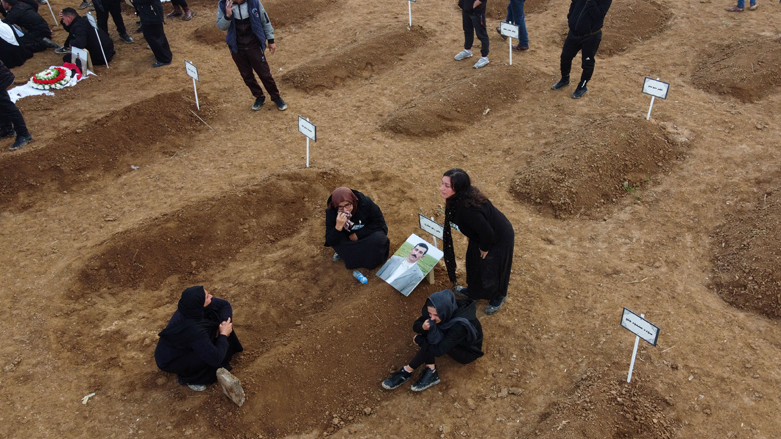Yezidis welcome statement of 'great concern' by 18 nations on missing captives

ERBIL (Kurdistan 24) – Yezidi (Ezidi) activists have welcomed a joint statement released by 18 foreign countries, most of them European, on the thousands of Yezidi women and children kidnapped by ISIS during the group’s 2014 ascent in Iraq and Syria that still remain missing.
“The 2014 attacks on Sinjar (Shingal) and the Ninevah Plains displaced thousands of people from their homes. ISIS/Daesh abducted thousands of others, forcing boys to become child soldiers and selling women and children into sexual slavery,” read the statement.
The signatories are Albania, Armenia, Australia, Croatia, Denmark, Estonia, Georgia, Hungary, Latvia, Lithuania, the Netherlands, Poland, Slovakia, Slovenia, Sovereign Order of Malta, Sweden, United Kingdom, and the United States.
“Yezidi groups report that at least 2,763 Yezidi women and children remain missing after being kidnapped by ISIS/Daesh,” it continued, adding “The number of people they killed remains unknown, and discoveries of mass graves continue.”
The governments noted, “Seven years after the mass atrocities, it is terrible that so many Yezidi women and children remain missing and that their fate is unknown.”
In mid-September, 80 organizations and experts urged that efforts to rescue as many as possible among those still unaccounted for.
In August, on the seventh anniversary of the tragic events that began in August 2014, Yezidi activists called on the international community to help bring missing Yezidi girls back home.
Read More: Yezidis call for mission to find missing women on 7th anniversary of genocide
Some of the missing Yezidi have been found at the infamous al-Hol displacement camp in Syria that hosts thousands of those suspected of affiliation with ISIS and their children, with more being found in the Syrian province of Deir al-Zor. Others are still held prisoner in northwest Syria in areas under Jihadist or Turkish control. Furthermore, Yezidi children have also been found in Turkey.
The New York Times recently reported that, while most of the missing are presumed dead, a large number of them are thought to be alive and held captive in Syria or Turkey, while some of them are held by former ISIS fighters who joined the Turkish-backed Syrian National Army in areas under Turkish control.
Murad Ismael, the co-founder and president of Sinjar Academy, told Kurdistan 24 that the statement comes at a critical time, since it is becoming increasingly difficult to locate and free remaining captives.
“We believe that any future liberations will require more efforts,” he said. I hope now other actors, in particular, the Iraqi government and KRG (Kurdistan Regional Government), join the group and that a search and rescue team is created to work across multiple countries, especially Iraq, Syria, and Turkey, to locate and rescue captives.”
Founder and Executive Director of the Free Yezidi Foundation (FYF) Pari Ibrahim also spoke to Kurdistan 24, explaining that activists have several times raised the issue of missing and unaccounted Yezidis in “basically every meeting in the last several months, and we will continue to do so.”
“We have an effort with a few others to highlight this until there is a formal, functioning rescue and identification plan. We will not stop until there is a concrete international plan. Seven years later, thousands remain missing. It is an outrage.”
